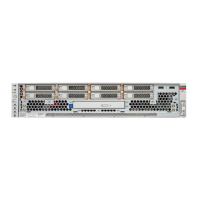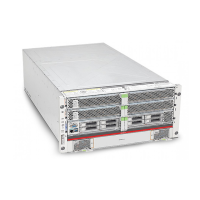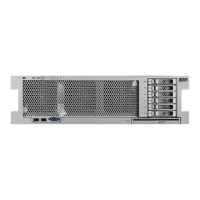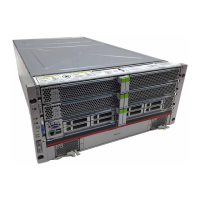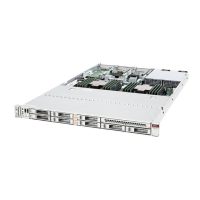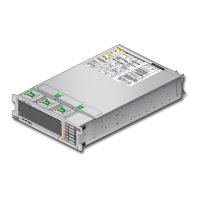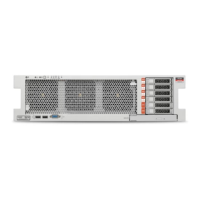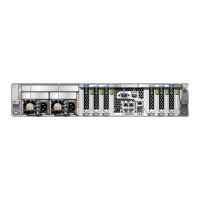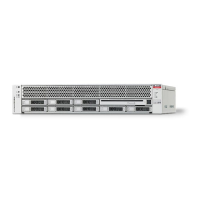76 Netra SPARC T4-1B Server Module Service Manual • June 2012
■ POST – Based on Oracle ILOM configuration variables, POST runs when the
server module is powered on.
For correctable memory errors (sometimes called CEs), POST forwards the error to
the Oracle Solaris PSH daemon for error handling.
If an incorrect memory fault is detected, POST displays the fault with the device
name of the faulty DIMMs, and logs the fault. POST then disables the faulty
DIMMs. Depending on the memory configuration and the location of the faulty
DIMM, POST disables half of physical memory in the server module, or half the
physical memory and half the processor threads. When the offlining process
occurs in normal operation, you must replace the faulty DIMMs based on the fault
message and then enable the disabled DIMMs. See “Clear the Fault and Verify the
Functionality of the Replacement DIMM” on page 82.
■ PSH – A feature of the Oracle Solaris OS, PSH uses the fault manager daemon
(fmd) to watch for various kinds of faults. When a fault occurs, the fault is
assigned a UUID and logged. PSH reports the fault and suggests a replacement for
the DIMMs associated with the fault.
If you suspect that the server module has a memory problem, follow the
“Diagnostics Process” on page 7. The flowchart helps you determine if the memory
problem was detected by POST or by PSH.
Once you identify which DIMMs you want to replace, see “Locate a Faulty DIMM”
on page 79. After replacing a faulty DIMM, you must perform the instructions in
“Clear the Fault and Verify the Functionality of the Replacement DIMM” on page 82.
Related Information
■ “Locate a Faulty DIMM” on page 79
■ “Clear the Fault and Verify the Functionality of the Replacement DIMM” on
page 82
■ “Clear the Fault and Verify the Functionality of the Replacement DIMM” on
page 82
■ “Detecting and Managing Faults” on page 5
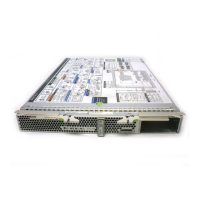
